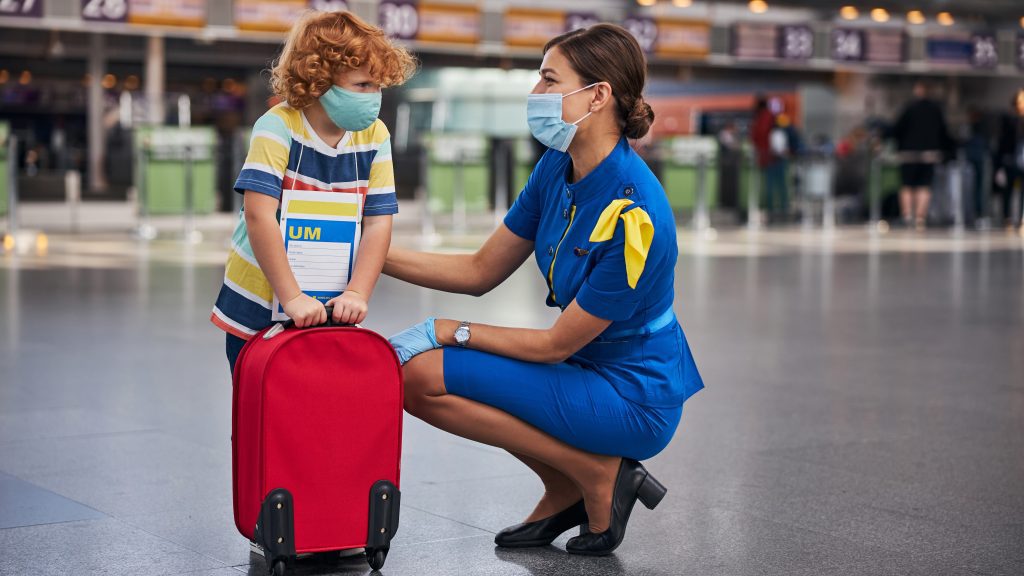Contact issues between parents must be considered on two fronts.
The type and amount of contact and the practical arrangements. In terms of who pays for travel, who travels with the children, what the children take with them between locations.
The practical arrangements and particularly when contact takes place across international borders. Parents with the best will in the world to keep contact going at a high level may be limited by the fact the contact has to take place half a world away.
Some six years ago, David Hodson identified the issues caused by costs of travel for contact and wrote about the unaccompanied minors schemes various airlines were operating to allow children to travel to and from contact alone but in a safe way[1]. No doubt a boon for parents arranging contact across borders as it saved the need for a parent to travel, avoiding significantly increased costs. However, costs saved in a parent not travelling with the children were often reduced by surcharges and increased fares imposed on the children travellers.
Then, as now, settlement of international cases depends on the parties reaching an agreement as to the level of contact and the practical arrangements to make it happen.
Unaccompanied minors’ schemes (UMs) involve children flying alone (with a member of the airline staff tasked with looking after them). Schemes can include anything from a child simply being walked through a departure gate or customs before being handed to a relative at Arrivals, to a ‘Sky Nanny’ service where children are accommodated in special lounges and supervised and entertained every step of the way.
There are some restrictions on schemes: with the rare exception of one scheme I encountered which allowed children as young as 2 to fly alone. Parents considering this option must check with the airline before any bookings are made as each airline has their own rules for the minimum age children are accepted as UMs. Some airlines expect children to administer medicines they require during the flight and all will expect the UMs to fund any refreshments beyond the basic package provided by the airline. Parents in virtually all cases are required to sign waivers or indemnities to avoid additional liability falling on the airline while it is in loco parentis for their children.
Airlines are increasingly using technology to support their schemes for solo junior travellers. Air New Zealand run the AirBand scheme. Much like a parcel being tracked from sender to depot to delivery, parents’ precious cargo can be tracked at every moment during the flight. Air France have a similar scheme.
Contact across borders is largely suspended now due to the COVID-19 outbreak. No one knows how long this situation will continue. Once travel does resume, however, there will be thousands of international journeys undertaken each week to facilitate contact.
David’s article provided a useful table setting out the various positions of some of the top airlines at the time. I have updated that table below. For the most part, surcharges have increased but some airlines have limited or cancelled their schemes altogether. British Airways has severely curtailed their scheme allowing solo child travellers of age 14 and over only. EasyJet has cancelled their scheme indefinitely. The responsibility and staffing costs of supervising young lone travellers has proved too much for many airlines.
The COVID-19 pandemic has left the airline industry in state of flux. Profits have vanished and some airlines – including those on the list below – may well vanish too, or at the very least restrict routes and increase prices. This will place further barriers in the way of parents trying to settle contact or relocation disputes across international borders.
Our advice remains that where disputes arise, early help from a lawyer to mediate, negotiate or, as a last resort, litigate the dispute would be useful to parents in settling disputes quickly and allowing precious contact time to start or continue.
| Airline | Surcharge | Observations |
| Air Canada | CA$100 -118 Canadian (equivalent to £56.80 – 67.73) | Scheme for 8 -17 years old only |
| Aer Lingus | No fee | Scheme for children aged 12 years and older only |
| Air France | No extra cost | |
| ANA | Adult fare | |
| American Airlines | US$150 plus tax or £119.73 | |
| British Airways | Adult fare | Scheme for children aged 14 years and older only |
| Cathay Pacific | US$130 | |
| Delta | Adult fare plus US$150 or £103.77 | |
| Emirates | Adult fare (paid by children 12 and above in any event) | A child of 12 who would always pay an adult fare cannot be a supervising ‘adult’ for a child under 12 |
| Etihad | Adult fare | |
| KLM | Adult fare plus €100 – 250 surcharge or £87.69 – 219.23 | |
| Lufthansa | £60 – 130 | |
| Air New Zealand | Adult fare plus £25 | |
| Qantas | AUD$90 or £46.20 | A sibling aged 15 can act as a supervising ‘adult’ |
| Qatar | Adult fare plus second adult fare if an escort is needed | |
| Swiss Air | €70 – 150 or £61.37 – 131.52 | |
| Thai | Adult fare plus US$60 or £47.86 | |
| Turkish | Children aged 2 – 7 require a companion whose costs must be paid in full | Scheme for children aged 2 and above. |
*Currency conversions performed on 1st May 2020
David Hodson OBE MCIArb
[email protected]
The International Family Law Group LLP
www.iflg.uk.com
© May 2020
Citations
- iFLGhttps://iflg.uk.com/about-us
- iFLGhttps://iflg.uk.com/about-us
- iFLGhttps://iflg.uk.com/about-us
- iFLGhttps://iflg.uk.com/about-us










